

Catch Fish with
Mike Ladle
Information Page
SEA FISHING
For anyone unfamiliar with the site always check the FRESHWATER, SALTWATER and TACK-TICS pages. The Saltwater page now extends back as a record of over several years of (mostly) sea fishing and may be a useful guide as to when to fish. The Freshwater stuff is also up to date now. I keep adding to both. These pages are effectively my diary and the latest will usually be about fishing in the previous day or two. As you see I also add the odd piece from my friends and correspondents if I've not been doing much. The Tactics pages which are chiefly 'how I do it' plus a bit of science are also updated regularly and (I think) worth a read (the earlier ones are mostly tackle and 'how to do it' stuff).
'Why some fish fight harder than others – Part 1.
Bass
The idea for this piece was stimulated by something written about ‘hard fighting bass’ by, one of my angling heroes, the late Don Kelley. One factor which is rarely considered by anglers is the CONDITION of the fish you catch, and this often varies with the time of year related to spawning time, unsuitable weather and availability of food. Fish can also be in poor condition if they have diseases or heavy burdens of parasites. Keen bass angler and expert researcher Don considered the effect of condition in relation to the behaviour of his favourite species. This piece is based on what he wrote in an article called “When bass don't react”. Bass usually ‘pull the string’ pretty hard but as Don said -
"Many anglers may have caught bass which gave only token resistance to the rod. Why do they do it? Is it possible to judge when it is likely to happen?"
In an attempt to identify the reasons for these disappointing displays, Don analysed the apparent causes of unusually poor or unusually good ‘performance’. He recorded catches of exceptionally powerful fish and also particularly sluggish ones. He ignored any fish of under 3 pounds.
Summarising, he says that he caught, 108 unusually good (POWERFUL) performers, chiefly in August to November, and 32 unusually POOR ones, chiefly in May and June.
In detail he comments that, over-all, including these exceptional ones –
“The apparent causes for poor performance were –
24 spawning cases
5 ripe or running
3 part spent
11 fully spent
1 captured in 1963 after the terrible winter
3 swallowed-hook cases
2 large males 8.25and 6.0 pounds
1 case of very poor growth indicative of poor condition
1 case of low and still falling water temperature in late November
1 case for which no cause could be discerned. This one was the most remarkable. A fish of 5.5 pounds caught on a trout rod which I simply wound up to the net.
My diary merely expresses astonishment at how poorly it compared with smaller fish of about 2 pounds which immediately preceded it. It was caught in September so had nothing to do with spawning.”
He continues -
“Not surprisingly spawning seems to be the major cause of feeble fights. These (close to spawning) fish were caught in May, June and early July; but that does not mean that one might seriously consider stopping fishing then, because over the same period there were 35 very good performers and many more (unrecorded) which were merely normal. The difficulty is that the time when spawning throws them out of condition is a short one and it does not occur at the same time every year and in every area. Also, individual fish seemed to vary in their reactions…..”
“…..How do you identify spent fish without gutting them? The best (? only) method in the field was to calculate the condition factor (= maximum girth divided by the fork length). A spent bass will usually be between 0.52 and 0.55. Condition factors as low as this, in bass caught in May and June together with a poor fight, suggests that they should be put back at once.”
I guess that this is only a guide because a really full or empty stomach could affect the apparent condition of a fish too. Don's scientific studies on tagged bass throw a bit more light on the subject.
Bass are pretty tough fish and are normally able to shrug off the trauma of tagging very quickly. In fact, Don was astonished at the way in which the occasional tagged fish was recaptured. One tagged off the mouth of the river Tamar was in such poor shape when released that he took it along to nearby quayside steps to help it recover. About 20 minutes later it drifted past where they were fishing, it was on its side and to all appearances, dead. A year later it was recaptured in Plymouth sound in good condition. In another case, in Anglesey, a bass was having difficulty in reviving, he waded out to retrieve it and if necessary, write it off. An untimely wave took it out of his reach, and it drifted away on the surface. Amazingly, the fish was recaptured on their next visit a month later, in good condition.
Don was writing with hindsight, but the impact of poor condition, (this time on survival) was brought home to him very forcibly in 1984, when he was involved in a follow up to an earlier Anglesey tagging study. The idea was to find out a bit more about the problem of tag loss (rejection) a drawback of all tags.
Overall, the recapture rates of the 1984 fish were firstly
Month - June number tagged 19 Recaptures = 10%
Month - July number tagged 12 Recaptures = 25%
Month - Oct-Dec number tagged 16 Recaptures = 38%
It is striking that NONE of the June 1984 bass, which were judged as in poor, or even moderate, condition was EVER recaptured. Of those in better condition which were tagged 40% were recaptured. Don finally comments that “Of the 108 fish rated as POWERFUL in the original study, the true figure should be a good deal higher. As, many of these hard-fighting-fish were lost (so of course not recorded).”
Here are a few pictures of Dorset fish caught at different times of the year.
Caught 18 April a fairly skinny fish.
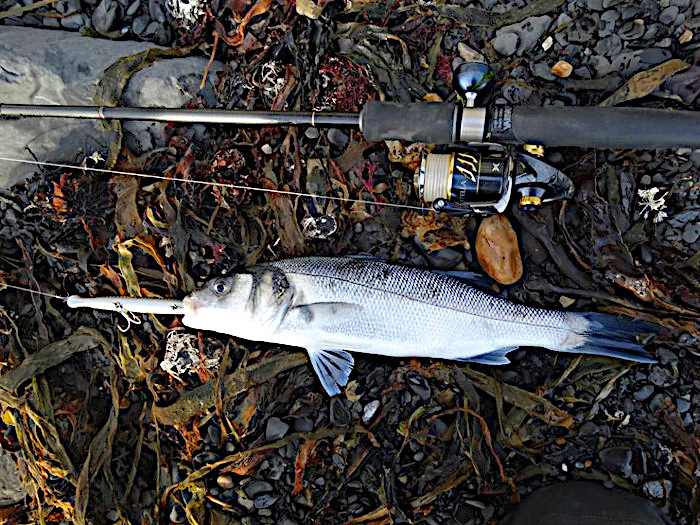
Caught 25 April also thin. Possibly Don didn't fish as early as this but they have often spawned already.
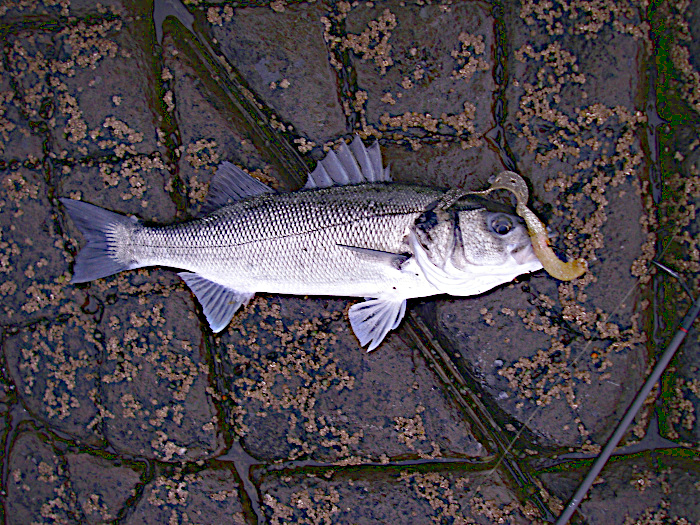
Caught 2nd July - in better condition?.
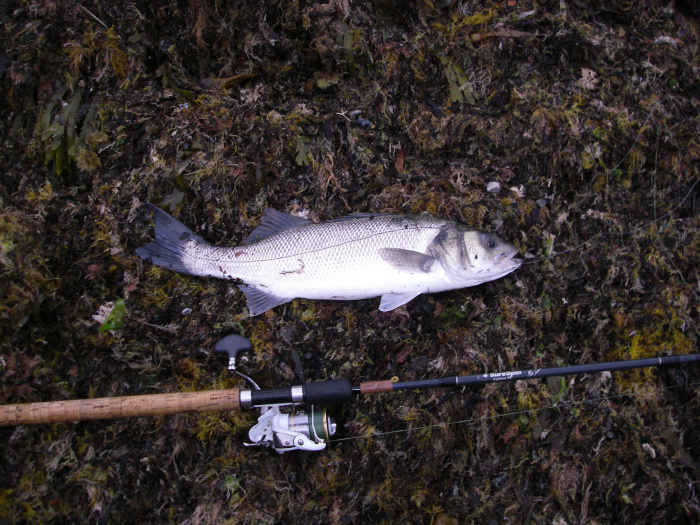
Caught 8th August and in good nick.
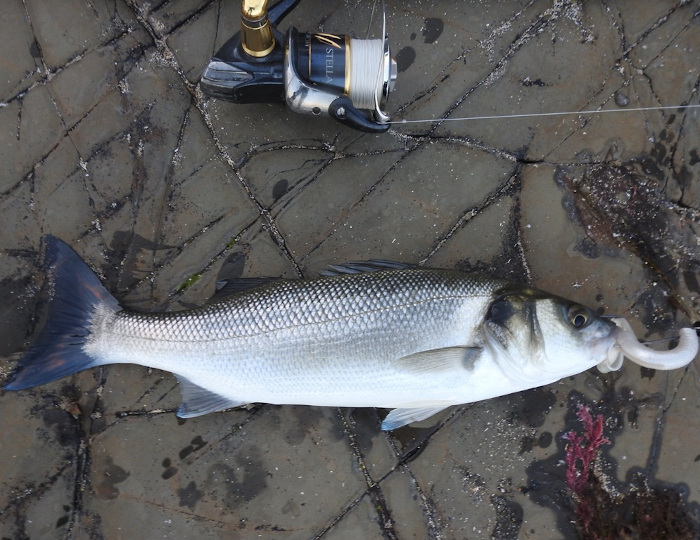
A nice fat bass caught on the 27 October.
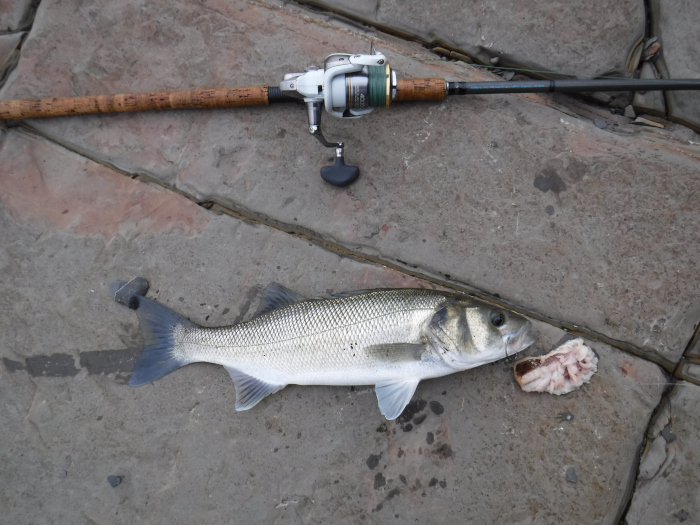
Next time I’ll say something about my experience of how hard fish in general fight when they are caught on rod and line.
– PLEASE TELL YOUR TWITTER, FACEBOOK, EMAIL FRIENDS ABOUT THESE BOOKS.
HOOKED ON BASS
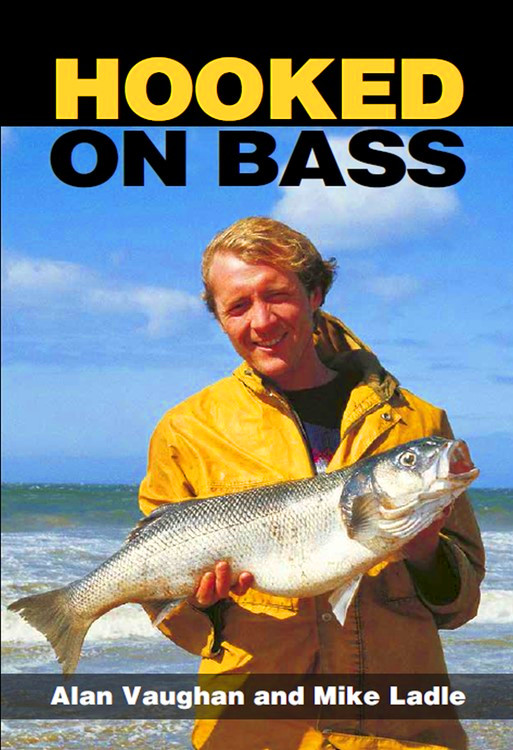
Written with Alan Vaughan. NEW PRINT OF THE ORIGINAL: IN PAPERBACK. Copies available from all good book shops RRP £14:99 -
ANGLING ON THE EDGE
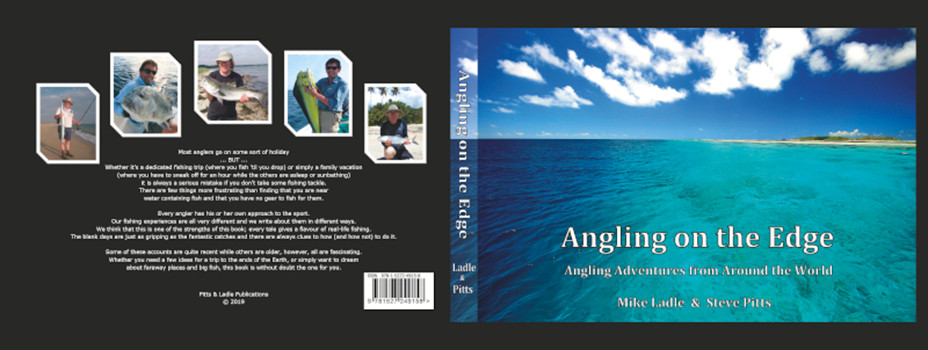
Copies can now be ordered (printed on demand) from Steve Pitts at £34.00, inc. Royal Mail Insured UK Mainland Postage.
To order a book send an E-MAIL to - stevejpitts@gmail.com
FISHING FOR GHOSTS
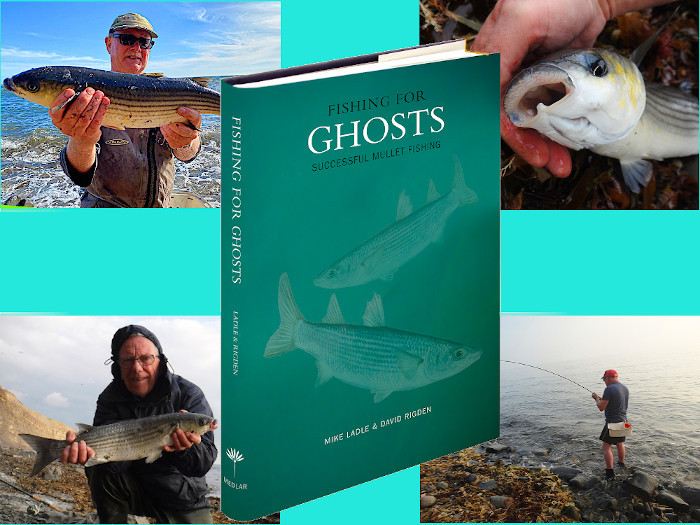
Written with David Rigden. Copies from
THE SECOND WAVE

Written with Steve Pitts this is a SEQUEL TO THE BESTSELLER "Operation Sea Angler" IT'S AVAILABLE ON PAPER FROM -
If you have any comments or questions about fish, methods, tactics or 'what have you!' get in touch with me by sending an E-MAIL to - docladle@hotmail.com